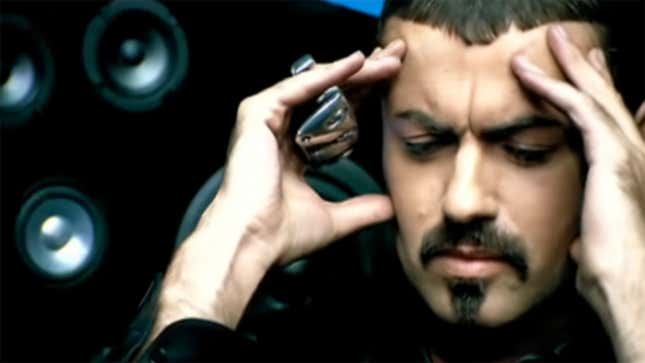

Though he wouldn’t publicly come out for another two years or so, on George Michael’s third solo album, Older, the pop star told us he was gay without telling us he was gay. In retrospect, it was all very obvious, as Michael would explain to MTV News in 2004: “By the time Older came out, my presentation of myself, the lyrics, the dedications, everything was there in [listeners’] consciousness other than me sitting with someone and going, ‘I’m gay. Yes, I am gay. It’s not terribly hard to work out, but yes I am gay.’”
He’d explain to Oprah Winfrey in 2004 that he was “bursting to come out” by the time news circulated that he had been entrapped in April 1998 in a Beverley Hills public restroom by a handsome undercover cop with an exposed penis. But it was the “not telling” part of the equation that was so explicit for so long. “People have speculated about my sexuality for years and years,” he told Interview in 1988, in a piece pegged to his icon-making solo debut, Faith. “They are obviously interested in my sex life. Fine. Let them speculate. I’m not going to put them right one way or the other.”
“I will never talk publicly about things that are incredibly personal…in any other way than on record,” he vowed to MTV News in 1996. The very concept of coming out was something he purported to be against. “I don’t believe in people making public statements about their sexuality,” he told The Big Picture in 1996. “I’m so unattached to my public persona now, it would never even occur to me that I would want to clarify my sexuality.” Michael was still closeted on May 14, 1996, when Older landed in stores. It was never not a seminal gay text. Being firmly closeted is its own uniquely gay experience, one that Older conveys with the kind of paradoxical opaque clarity that comes with living a partially authentic life.
Behind the scenes, Michael had been aware that he was queer for years. In his Wham! groupmate Andrew Ridgeley’s 2019 memoir Wham! George Michael & Me, Ridgeley recalls Michael coming out to him as gay (while qualifying that he might actually be bisexual) prior to the release of the duo’s sophomore album, the global smash Make It Big. That would mean that Michael was actively closeted during his entire run as a pop fixture in the United States.
There was more than just sexual expression that had been itching to come out in the years before Older, which turns 25 years old today. Michael hadn’t released a full-length since 1990’s Listen Without Prejudice Vol. 1, a conscious amputation of the bubblegum tendencies that had defined his artistic output up to that point. Along with the pop went the audience for it—worldwide, Prejudice sold an estimated 8 million, a fraction of the 20 million units of Michael’s preceding blockbuster Faith. Michael accused his label, Sony, of treating him as software and not promoting his less accessible project (along with some interstitial ones that followed, including Red, Hot, and Dance, the 1992 compilation to which he contributed three upbeat tracks that were supposedly intended for a more dance-oriented Listen Without Prejudice Vol. 2). Michael sued Sony to get out of his contract and lost, only to be bought out later by Virgin in Europe and newly established megacorp DreamWorks (Steven Spielberg, Jeffrey Katzenberg, and David Geffen’s joint venture). Older would turn out to be the first release on DreamWorks’ record label. In its booklet, Michael printed a message to his fans: “Thank you for waiting.”
-

-

-

-

-

-

-

-

-

-

-

-

-

-

-

-

-

-

-

-

-

-

-

-

-

-

-

-

-

-

-

-

-

-

-

-

-

-

-

-








































